






InnerLife Recovery
Verified Center
This provider's information has been quality-checked by Recovery.com's Research Team for accuracy and completeness, including center verification through appropriate third-party organizations.
Treatment Focus
This center treats substance use disorders and co-occurring mental health conditions. Your treatment plan addresses each condition at once with personalized, compassionate care for comprehensive healing.
Primary Level of Care
Offering intensive care with 24/7 monitoring, residential treatment is typically 30 days and can cover multiple levels of care. Length can range from 14 to 90 days typically.
Treatment Focus
This center treats substance use disorders and co-occurring mental health conditions. Your treatment plan addresses each condition at once with personalized, compassionate care for comprehensive healing.
Primary Level of Care
Offering intensive care with 24/7 monitoring, residential treatment is typically 30 days and can cover multiple levels of care. Length can range from 14 to 90 days typically.
Private Pay
You pay directly for treatment out of pocket. This approach can offer enhanced privacy and flexibility, without involving insurance. Exact costs vary based on program and length of stay. Contact the center for specific details.
InnerLife Recovery
InnerLife Recovery
About InnerLife Recovery
At InnerLife Recovery, they specialize in treating alcohol, drug, and behavioral addictions through highly personalized care. Their approach is intimate, catering to a maximum of eight clients at a time, ensuring that each individual receives tailored treatment plans. Offering panoramic mountain and Mediterranean views, their facility offers a serene backdrop for recovery, allowing clients to reconnect with their inner strength and vitality.
InnerLife Recovery’s Approach: Evidence-Based and Personalized Care
InnerLife Recovery is committed to offering a broad spectrum of evidence-based therapies designed to address the unique needs of each client. Their treatment modalities include:
•Cognitive Behavioral Therapy (CBT)
•12-Step Recovery Programs
•Individual, Group, and Family Counseling
•Comprehensive Blood Work and Health Assessments
•Customized NAD+ Vitamin Transfusions
Tension and Trauma Release Exercises (TRE)
Moreover, InnerLife Recovery is adept at treating co-occurring mental health conditions and eating disorders, with specialists available on-call. Understanding the critical nature of detoxification, they facilitate detox services, offering a safe and supportive start to the recovery journey. Their staff, having personal recovery experiences, brings empathy, understanding, and commitment to delivering solution-focused treatment.
Holistic Recovery Services
To ensure a well-rounded recovery experience, InnerLife Recovery offers an array of on-site wellness and holistic therapies, including:
•Comprehensive Medical Detoxification
•Daily Personal Counseling Sessions
•Diverse Group Therapy Sessions
•Physical Rehabilitation Programs
•Meditation and Yoga
•Massage and Cold Bath Therapy
•IV Vitamin Therapy including NAD+
•Oxygen Therapy and Breathwork
•Addiction Education and Underlying Trauma Treatment
•Access to Onsite Pool and Gym with Personal Training
Their nutritional program features fresh, health-conscious meals, with a special emphasis on local cuisine every Sunday to foster community and shared experiences among clients.
Continued Support in Aftercare
Recognizing the importance of sustained recovery, InnerLife Recovery extends its support beyond the 28-day residential program through a comprehensive aftercare program. This includes ongoing counseling, support groups, and relapse prevention strategies, empowering clients towards maintaining long-term sobriety and a fulfilling life.

Highlights from the Center
Highlights
These highlights are provided by and paid for by the center.
Customized Treatment Plans
Holistic Approach
5+ Individual Sessions a Week
Addiction Recovery
Center Overview
Treatment Focus
This center treats substance use disorders and co-occurring mental health conditions. Your treatment plan addresses each condition at once with personalized, compassionate care for comprehensive healing.
Pricing and Program Length
Estimated Center Costs
The cost listed here (undefined), is an estimate of program cost. Center price can vary based on program and length of stay. Contact the center for more information. Recovery.com strives for price transparency so you can make an informed decision.
Meet Your Care Team

Dr. Charles Triay
General Practitioner & Substance Use Specialist

Steven James
Centre Manager

Dámaris Tenza
Lead Therapist

Marie de Noailles
Psychologist & Consultant

James Curry
Health & Wellbeing Coordinator and Co-Founder

Shelly Loder-Sigurdsson
Trauma Releasing Exercises (TRE) Therapist

Alberto
Breathwork Therapist

Kasia
Holistic Therapist

Iris
Senior Recovery Worker & Counsellor

James Fuller
12-Steps Counsellor
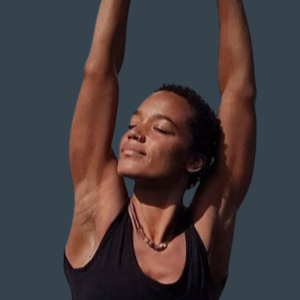
Zarah
Breathwork and Yoga Teacher

Josh
12-Step Specialist & Recovery Worker

Carolina Fernández
Personal Trainer

Natalia Martínez
Strength & Conditioning Coach
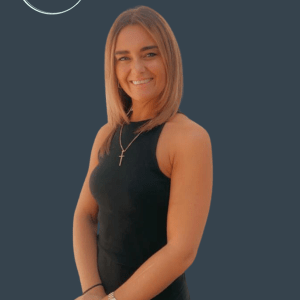
Hayley
Deep Tissue Massage & Beautician

Brie
Recovery Worker

Nikki
Recovery Worker

Salva
Hair & Beauty Specialist

Lindsay
Eating Disorders & Recovery Counsellor

Patrizia
Tai Chi & Health Qigong Teacher
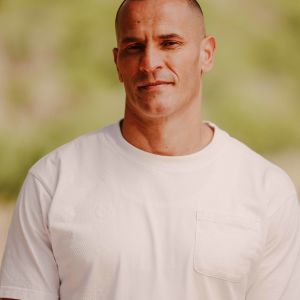
Mohamed
Fitness and Wellness Personal Trainer

Shree Yaya
Transformational Breath Coach

Reynald
Personal Wellness Chef

Maria
Housekeeping
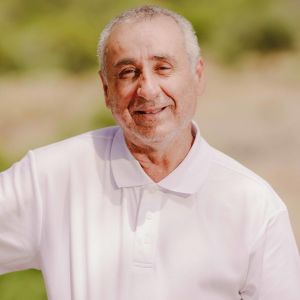
Jose
Gardener


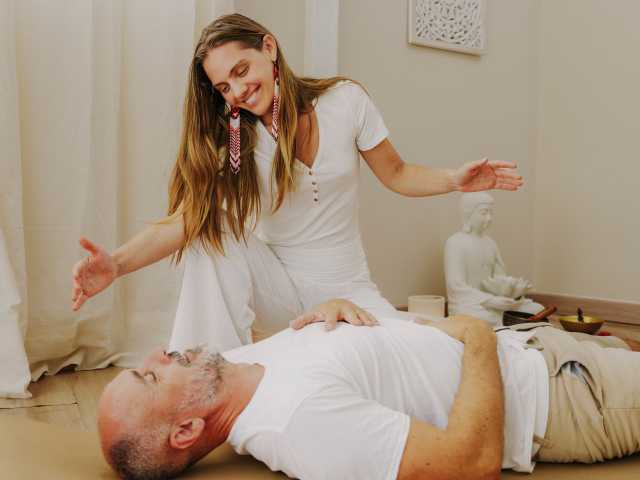
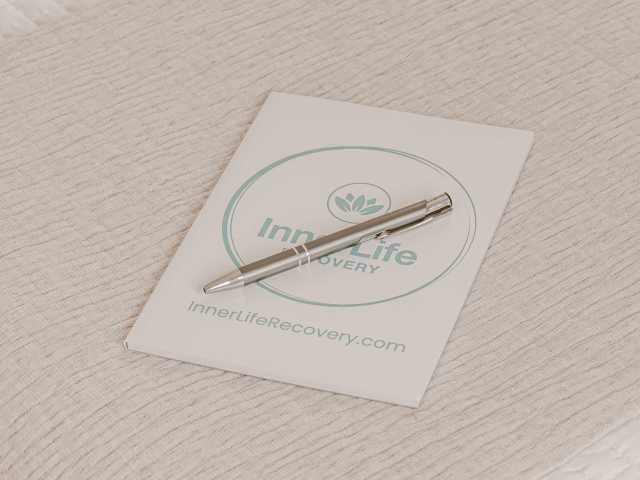
Levels of Care







Your Care Options
Specializations
Alcohol
Using alcohol as a coping mechanism, or drinking excessively throughout the week, signals an alcohol use disorder.
Co-Occurring Disorders
A person with multiple mental health diagnoses, such as addiction and depression, has co-occurring disorders also called dual diagnosis.
Drug Addiction
Drug addiction is the excessive and repetitive use of substances, despite harmful consequences to a person's life, health, and relationships.
Gambling
Excessive, repetitive gambling causes financial and interpersonal problems. This addiction can interfere with work, friendships, and familial relationships.
Post Traumatic Stress Disorder
PTSD is a long-term mental health issue caused by a disturbing event or events. Symptoms include anxiety, dissociation, flashbacks, and intrusive thoughts.
Who We Treat
Young Adults
Emerging adults ages 18-25 receive treatment catered to the unique challenges of early adulthood, like college, risky behaviors, and vocational struggles.
Men and Women
Men and women attend treatment for addiction in a co-ed setting, going to therapy groups together to share experiences, struggles, and successes.
Professionals
Busy, high-ranking professionals get the personalized treatment they need with greater accommodations for work, privacy, and outside communication.
Approaches
Bio-Medical
A philosophy focusing on the biomechanics behind mental health disorders, using prescribed medications as a supplement to behavioral therapy.
Evidence-Based
A combination of scientifically rooted therapies and treatments make up evidence-based care, defined by their measured and proven results.
Holistic
A non-medicinal, wellness-focused approach that aims to align the mind, body, and spirit for deep and lasting healing.
Individual Treatment
Individual care meets the needs of each patient, using personalized treatment to provide them the most relevant care and greatest chance of success.
Personalized Treatment
The specific needs, histories, and conditions of individual patients receive personalized, highly relevant care throughout their recovery journey.
Twelve Step
Incorporating spirituality, community, and responsibility, 12-Step philosophies prioritize the guidance of a Higher Power and a continuation of 12-Step practices.
Therapies
1-on-1 Counseling
Patient and therapist meet 1-on-1 to work through difficult emotions and behavioral challenges in a personal, private setting.
Meditation & Mindfulness
A practiced state of mind that brings patients to the present. It allows them to become fully aware of themselves, their feelings, and the present moment.
Mindfulness Therapy
This ancient practice can be mental, emotional, and even spiritual. In meditation, you focus your attention on the present moment without judgement.
Adventure Therapy
This experiential approach uses the physical and emotional challenges of outdoor activities as tools for personal growth.
Animal Therapy
Animals can inspire trust and self-worth. In this experiential therapy, guided interactions are used to improve social skills and emotion regulation.
Biochemical Restoration
This treatment restores any brain and body deficiencies caused by substance abuse through a full detox, followed by supplement replenishment.
Equine Therapy
Guided interactions with trained horses, their handler, and a therapist can help patients improve their self-esteem, trust, empathy, and social skills.
Conditions We Treat
Pornography Addiction
A person with a porn addiction is emotionally dependent on pornography to the point that it interferes with their daily life and relationships.
Personality Disorders
Personality disorders destabilize the way a person thinks, feels, and behaves. If untreated, they can undermine relationships and lead to severe distress.
ADHD, ADD
ADHD is a common mental health condition caused by dopamine imbalance. Common symptoms include inattention, hyperactivitiy, and impulsivity.
Anxiety
Anxiety is a common mental health condition that can include excessive worry, panic attacks, physical tension, and increased blood pressure.
Bipolar
This mental health condition is characterized by extreme mood swings between depression, mania, and remission.
Burnout
Burnout entails mental and physical exhaustion, and leads to a severe lack of fulfillment. This condition is often caused by overwork.
Codependency
Codependency is a pattern of emotional dependence and controlling behavior. It's most common among people with addicted loved ones.
Depression
Symptoms of depression may include fatigue, a sense of numbness, and loss of interest in activities. This condition can range from mild to severe.
Eating Disorders
An eating disorder is a long-term pattern of unhealthy behavior relating to food. Most people with eating disorders have a distorted self-image.
Substances We Treat
Alcohol
Using alcohol as a coping mechanism, or drinking excessively throughout the week, signals an alcohol use disorder.
Co-Occurring Disorders
A person with multiple mental health diagnoses, such as addiction and depression, has co-occurring disorders also called dual diagnosis.
Drug Addiction
Drug addiction is the excessive and repetitive use of substances, despite harmful consequences to a person's life, health, and relationships.
Psychedelics
Hallucinogenic drugs—like LSD—cause euphoria and increased sensory experiences. When abused, they can lead to depression and psychosis.
Methamphetamine
Methamphetamine, or meth, increases energy, agitation, and paranoia. Long-term use can result in severe physical and mental health issues.
Opioids
Opioids produce pain-relief and euphoria, which can lead to addiction. This class of drugs includes prescribed medication and the illegal drug heroin.
Prescription Drugs
It's possible to abuse any drug, even prescribed ones. If you crave a medication, or regularly take it more than directed, you may have an addiction.
Smoking Cessation
Quitting smoking—i.e., ceasing to smoke—means giving up smoking nicotine and tobacco products. This process has very important health benefits.
Languages
Aftercare
Care Designed for Your Needs
Personal Amenities
Amenities
Special Considerations
Clients can bring their own pet(s)
For greater comfort and healing, pet-friendly treatment centers welcome dogs and animal companions to stay with their owners while they attend treatment.
Couples program
Using gentle clinical care, therapists guide patients and their partner through guided sessions to address issues and work towards lasting solutions.
Executive Program
Addiction and mental health treatment for executives typically involves high discretion, greater technology access, and more private, 1-on-1 care.
Flexible technology policies
Centers with flexible technology policies allow professionals to stay in touch with work and give patients a greater sense of connection and normalcy.
LGBTQ group
Group therapy unites LGBTQ+ patients in a safe and culturally competent setting, encouraging peer support under the expert leadership of a therapist.
Activities
Yoga
Yoga is both a physical and spiritual practice. It includes a flow of movement, breathing techniques, and meditation.
Off-Site Activities
Yoga
Yoga is both a physical and spiritual practice. It includes a flow of movement, breathing techniques, and meditation.
Off-Site Amenities
What people are saying
Treatment
5.0
Accommodations
5.0
Food & Nutrition
5.0
Value
4.9
Pros
- Beautiful Location (4)
- Excellent & Effective Treatment Programming (4)
- Gourmet & Nutritious Food (4)
- Friendly & Competent Staff (4)
Anonymous
Treatment in 2025 • (45 days) • Reviewed 09/11/25
Former Client
JB
Treatment in 2023 • (14 days) • Reviewed 09/01/23
Former Client
•Director
Hanna
Treatment in 2023 • (30 days) • Reviewed 08/30/23
Former Client
•Teacher
Jacob
Treatment in 2023 • (30 days) • Reviewed 08/22/23
Former Client
•Business Owner
IL
Treatment in 2023 • (90 days) • Reviewed 08/24/23
Former Client
•Engineer






